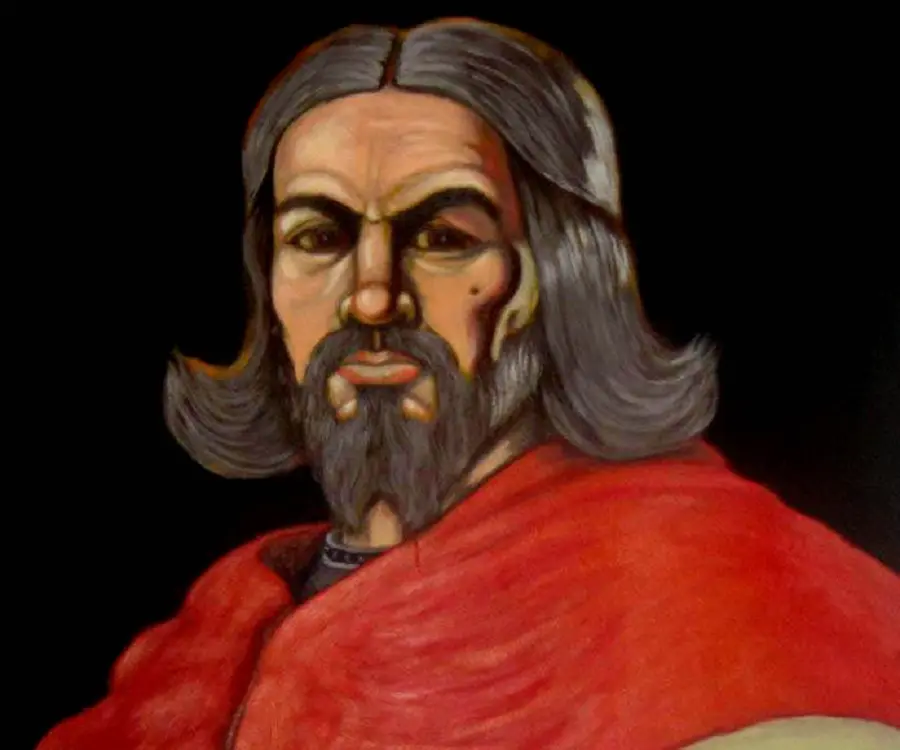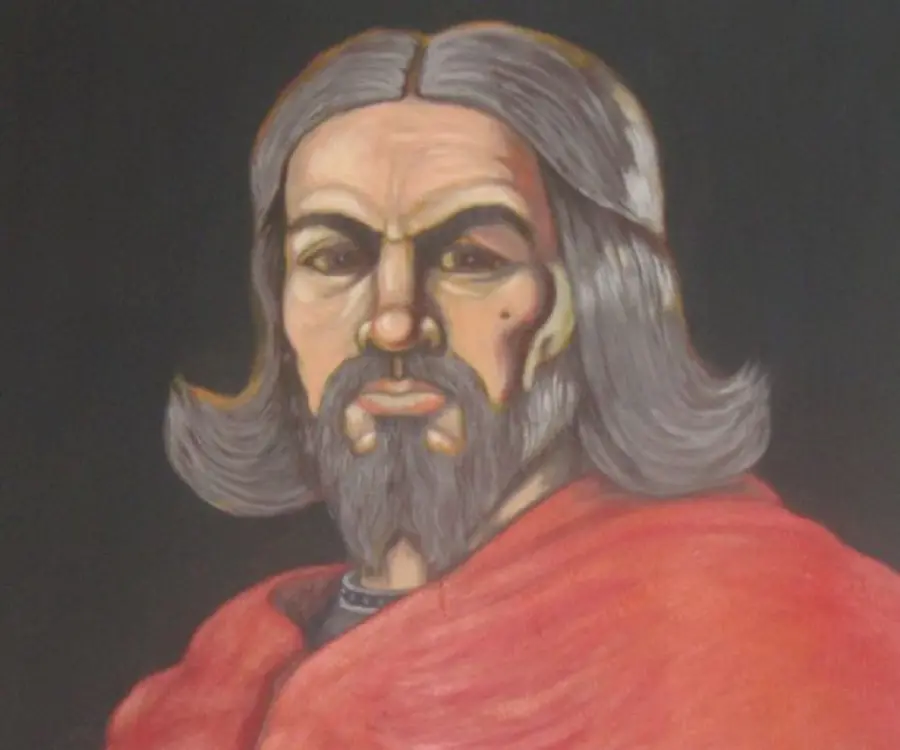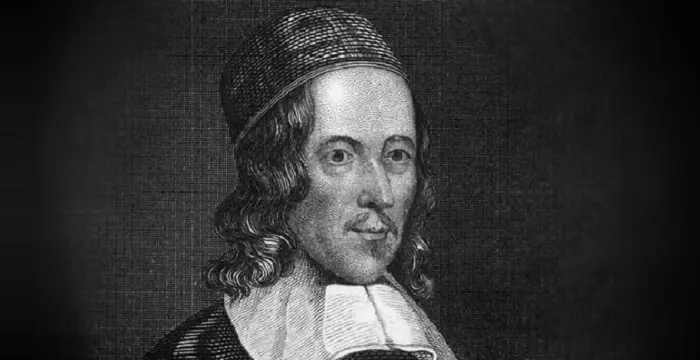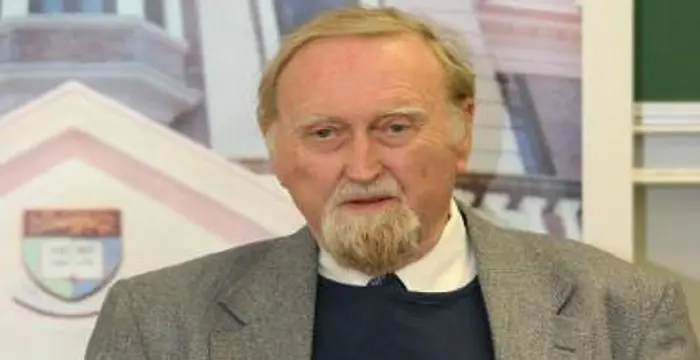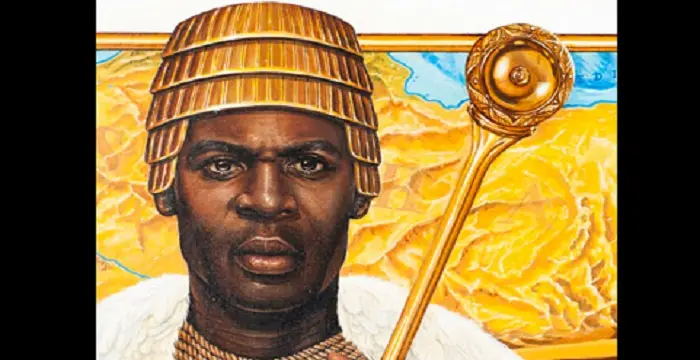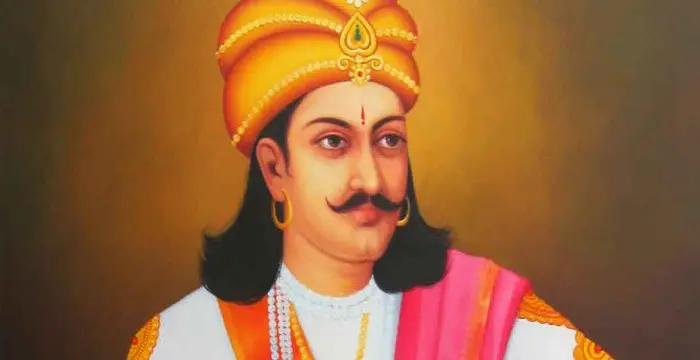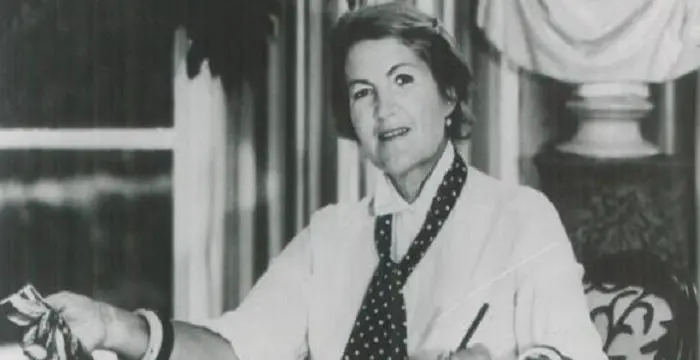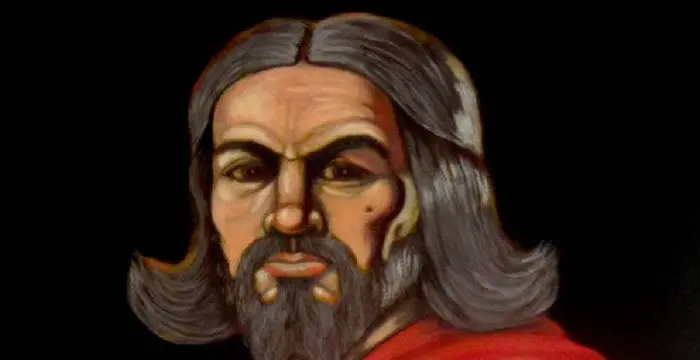
Owain Glyndŵr - Defender, Family and Childhood
Owain Glyndŵr's Personal Details
Owain Glyndwr was a legendary leader of Welsh nationalism and the last native Prince of Wales who led the revolt against English rule
| Information | Detail |
|---|---|
| Birthday | 1349 |
| Died on | January 1, 1416 |
| Nationality | Welsh |
| Famous | Historical Personalities, Defender, Welsh Men |
| Spouses | Margaret Hanmer |
| Known as | Owain Glyndwr |
| Religion | Catholicism |
| Gender | Male |
| Father | Gruffudd Fychan II |
| Famous as | Defender |
| Died at Age | 67 |
Owain Glyndŵr's photo
Who is Owain Glyndŵr?
Owain Glyndwr was the last native Prince of Wales who started and led a valiant revolt against the English rule of Wales. This Welshman was a born leader and served in the English military before starting a rebellion against the English ruler, King Henry IV who desired to extend his territory to Wales, similar to his ruling of Scotland. The Welsh uprising initially included his family, friends and other senior officials, but later became a large group comprising of students, laborers, archers and soldiers of Welsh nationality. The Welsh Revolt saw initial success with the seizure of several regions and castles, but started fading a few years later with the English retaking and recapturing the lost regions. Eventually, he fled and remained a mystery till his death and burial in an unknown grave. His sharp mind, charisma, leadership qualities and heroic acts made him a national figure who is remembered till date with the revolt being commemorated annually in Wales. To add on, he was titled as the father of Welsh nationalism by the Cymru Fydd Movement in the late 19th century. Such was his popularity that he was portrayed as a magical, spiritual and wild man by legendary poet and playwright, William Shakespeare, in his play ‘Henry IV, Part 1’.
// Famous Welsh Men
Leondre Antonio Devries
Leondre Devries is a British Rapper. Let’s have a look at his family & personal life including age, net worth, girlfriends, and fun facts.
George Herbert
George Herbert was a famous English poet and Anglican priest. He is best known for his collection of poems, “The Temple”. To know more about him, read on this brief biography in the lines below.
Sir Clive William John Granger
Clive. W.J. Granger is a Nobel Prize winning economist and a trendsetter in economic science. With this biography, explore all about Clive Granger’s profile and life.
Childhood & Early Life
Owain Glyndwr was born in 1349 in northeast Wales, into an Anglo-Welsh family, to hereditary Prince of Powys Fadog and Lord of Glyndyfrdwy, Gruffydd Fychan II, and Elen ferch Tomas Ap Llyweyln of Deheubarth.
Following his father’s death in around 1370, he was brought up in the household of Anglo-Welsh judge, Sir David Hanmer.
He was sent to the Inns of Court, London, to study law but returned back to Wales after seven years in 1383, probably after becoming a legal apprentice.
Accession & Reign
In 1384, he joined English military service and was posted under Sir Gregory Sais in the English-Scottish bordering region of Berwick-upon-Tweed.
He fought for King Richard II while serving under John of Gaunt in Scotland, in 1385.
In March 1387, he participated in the Battle of Cadzand in southeast England under 11th Earl of Arundel, Richard Fitzalan, wherein a Franco-Spanish-Flemish fleet was defeated.
He returned back to Wales in late 1387 upon Hanmer’s death to take upon his responsibility as the executor of his property.
With three years of experience in different areas under different people, he sought to rise but was forced to handle his Welsh estates for nearly ten years due to Gregory Sais’s death and Fitzalan’s sidelining.
In 1399, Henry IV dethroned Richard II and took over the kingdom, following which the former disagreed to mediate the land seizure dispute between Owain and his neighbor, Baron Grey de Ruthyn.
With no option left to fight for his petition, Owain took upon the ancestral title of Prince of Powys in September 1400 and instigated a revolt against Ruthyn’s territories, along with his followers including his eldest son and brothers-in-law.
A series of conflicts between his followers and King Henry IV furthered the revolt with more Welshmen joining in and capturing northern and central Wales in 1401.
The Penal Laws against Wales issued by the English Parliament in 1402 to gain English dominance over the Welsh country brought more Welshmen into Owain’s army.
He arrested Ruthyn in 1402 and held him for almost a year, and released him after Henry paid a large ransom.
He was offered help from external parties, especially the French and Bretons, with the former planning to use Wales as a base to battle the English forces.
The Welsh Revolt, the Glyndwr Rising, or the Last War of Independence, as the uprising was named, spread across Wales by 1403, which was evident from Welsh students and laborers leaving England and returning to Wales to join the rebellion.
With most of Wales under his control, he seized the castles of Aberystwyth and Harlech, and held the first parliament at Machynlleth in 1404, where he was proclaimed Prince of Wales.
In 1405, France and Wales negotiated a treaty, following which the French army invaded English Plantagenet Aquitaine and occupied Milford Haven, Herefordshire and Worcestershire, declaring the year as the ‘Year of the French’.
For eight days, neither the French army nor the English forces took the initiative and only monitored each other at Woodbury Hill near Worcester, with both of them withdrawing eventually for no known reasons.
In early 1406, the Welsh forces started suffering defeats at the hands of the English army and the castles of Aberystwyth and Harlech were recaptured in 1407 and 1409 respectively.
During the battle at Shropshire in 1410, Mortimer died while Owain’s wife and four children were captured and imprisoned in the Tower of London where they are believed to have died before 1415.
He led the final battle of revolt in 1412 after which he disappeared from history and became a hunted fugitive. Even though substantial rewards were offered, his whereabouts remained a mystery as he was never captured nor betrayed.
Major Battles
In June 1401, he achieved his first major victory at the Battle of Mynydd Hyddgen. Though Henry IV’s forces attacked but were later forced to withdraw.
He captured Sir Edmund Mortimer, Henry IV’s cousin, at the Battle of Bryn Glas in June 1402 and demanded a huge amount for his release, who, seeing his increasing chances of claiming the English throne, refused to make the payment.
Personal Life & Legacy
He married Hanmer’s daughter, Margaret, in 1383, earning the titles of Squire of Sycharth and Glyndyfrdwy.
The couple had five sons – Gruffudd, Madog, Maredudd, Thomas, and John and four daughters – Alys, Jane, Janet, and Margaret. However, he is rumored to have had a fifth daughter – Catherine - as well.
Besides his legal offspring, he was known to have fathered illegitimate children as well – David, Gwenllian, Ieuan, and Myfanwy.
He is believed to be have died in 1416 at the estate of his daughter, Alys’ husband, John Scudamore at Kentchurch or Monnington in Herefordshire and was buried in an unknown grave.
He is remembered as a national hero with the 600th anniversary of the Glyndwr revolt being marked in 2000 with much fanfare across Wales.
Several streets, parks, and public squares are named after him, his statue on horseback stands in The Square, Denbighshire, a hotel in Corwen bears his name, and Glyndwr Award is given to achievers in arts and literature.
A number of fictional stories have been written on him by numerous writers, namely, ‘Owen Glendower’ (1941), Crown in Candlelight’ (1978), ‘Owain Glyndwr: Prince of Wales’ (2003), and ‘The Raven Boys’ (2012).
// Famous Historical Personalities
Sundiata Keita
Sundiata Keita was the founder of the Mali Empire in West Africa. This biography profiles his childhood, early life, struggles, founding of empire, rule, administration, achievements and also gives some fun facts.
Ashoka
Ashoka was the third emperor of the Mauryan Dynasty and ruled almost the entire Indian subcontinent. This biography profiles his childhood, life, reign, achievements and timeline
Jetsun Pema
Jetsun Pema is the Queen consort of Bhutan. Check out this biography to know about her childhood, family life, achievements and fun facts about her life.
Owain Glyndŵr biography timelines
- // 1349Owain Glyndwr was born in 1349 in northeast Wales, into an Anglo-Welsh family, to hereditary Prince of Powys Fadog and Lord of Glyndyfrdwy, Gruffydd Fychan II, and Elen ferch Tomas Ap Llyweyln of Deheubarth.
- // 1370Following his father’s death in around 1370, he was brought up in the household of Anglo-Welsh judge, Sir David Hanmer.
- // 1383He was sent to the Inns of Court, London, to study law but returned back to Wales after seven years in 1383, probably after becoming a legal apprentice.
- // 1383He married Hanmer’s daughter, Margaret, in 1383, earning the titles of Squire of Sycharth and Glyndyfrdwy.
- // 1384In 1384, he joined English military service and was posted under Sir Gregory Sais in the English-Scottish bordering region of Berwick-upon-Tweed.
- // 1385He fought for King Richard II while serving under John of Gaunt in Scotland, in 1385.
- // 1387He returned back to Wales in late 1387 upon Hanmer’s death to take upon his responsibility as the executor of his property.
- // Mar 1387In March 1387, he participated in the Battle of Cadzand in southeast England under 11th Earl of Arundel, Richard Fitzalan, wherein a Franco-Spanish-Flemish fleet was defeated.
- // 1399In 1399, Henry IV dethroned Richard II and took over the kingdom, following which the former disagreed to mediate the land seizure dispute between Owain and his neighbor, Baron Grey de Ruthyn.
- // Sep 1400With no option left to fight for his petition, Owain took upon the ancestral title of Prince of Powys in September 1400 and instigated a revolt against Ruthyn’s territories, along with his followers including his eldest son and brothers-in-law.
- // 1401A series of conflicts between his followers and King Henry IV furthered the revolt with more Welshmen joining in and capturing northern and central Wales in 1401.
- // Jun 1401In June 1401, he achieved his first major victory at the Battle of Mynydd Hyddgen. Though Henry IV’s forces attacked but were later forced to withdraw.
- // 1402The Penal Laws against Wales issued by the English Parliament in 1402 to gain English dominance over the Welsh country brought more Welshmen into Owain’s army.
- // 1402He arrested Ruthyn in 1402 and held him for almost a year, and released him after Henry paid a large ransom.
- // Jun 1402He captured Sir Edmund Mortimer, Henry IV’s cousin, at the Battle of Bryn Glas in June 1402 and demanded a huge amount for his release, who, seeing his increasing chances of claiming the English throne, refused to make the payment.
- // 1403The Welsh Revolt, the Glyndwr Rising, or the Last War of Independence, as the uprising was named, spread across Wales by 1403, which was evident from Welsh students and laborers leaving England and returning to Wales to join the rebellion.
- // 1404With most of Wales under his control, he seized the castles of Aberystwyth and Harlech, and held the first parliament at Machynlleth in 1404, where he was proclaimed Prince of Wales.
- // 1405In 1405, France and Wales negotiated a treaty, following which the French army invaded English Plantagenet Aquitaine and occupied Milford Haven, Herefordshire and Worcestershire, declaring the year as the ‘Year of the French’.
- // 1406In early 1406, the Welsh forces started suffering defeats at the hands of the English army and the castles of Aberystwyth and Harlech were recaptured in 1407 and 1409 respectively.
- // 1410 To 1415During the battle at Shropshire in 1410, Mortimer died while Owain’s wife and four children were captured and imprisoned in the Tower of London where they are believed to have died before 1415.
- // 1412He led the final battle of revolt in 1412 after which he disappeared from history and became a hunted fugitive. Even though substantial rewards were offered, his whereabouts remained a mystery as he was never captured nor betrayed.
- // 1416He is believed to be have died in 1416 at the estate of his daughter, Alys’ husband, John Scudamore at Kentchurch or Monnington in Herefordshire and was buried in an unknown grave.
// Famous Welsh peoples
Leondre Antonio Devries
Leondre Devries is a British Rapper. Let’s have a look at his family & personal life including age, net worth, girlfriends, and fun facts.
Emma Rhys-Jones
Emma Rhys-Jones is best known as the fiancée of Welsh professional footballer Gareth Bale. Check out this biography to know about her childhood, family, love life and fun facts about her.
Shirley Bassey
Shirley Bassey is a world-famous Welsh singer who has recorded numerous hits and is best known for her three James Bond theme songs.
Laura Ashley
Laura Ashley was a Welsh fashion designer. This biography provides detailed information about her childhood, life, career, achievements & timeline.
Shaheen Jafargholi
Shaheen Jafargholi is a Welsh singer as well as an actor. Check out this biography to know about his childhood, family life, achievements, and fun facts about him.
Marina Diamandis
Marina Diamandis is a Welsh singer-songwriter known by her stage name 'Marina and the Diamonds'. Check out this biography to know about her childhood, family life, achievements and fun facts about her.
Owain Glyndŵr's FAQ
When was Owain Glyndŵr died?
Owain Glyndŵr was died at 1416-01-01
Which age was Owain Glyndŵr died?
Owain Glyndŵr was died at age 67
What is Owain Glyndŵr nationalities?
Owain Glyndŵr's nationalities is Welsh
Who is Owain Glyndŵr spouses?
Owain Glyndŵr's spouses is Margaret Hanmer
What is Owain Glyndŵr's religion?
Owain Glyndŵr's religion is Catholicism
Who is Owain Glyndŵr's father?
Owain Glyndŵr's father is Gruffudd Fychan II
How famous is Owain Glyndŵr?
Owain Glyndŵr is famouse as Defender
